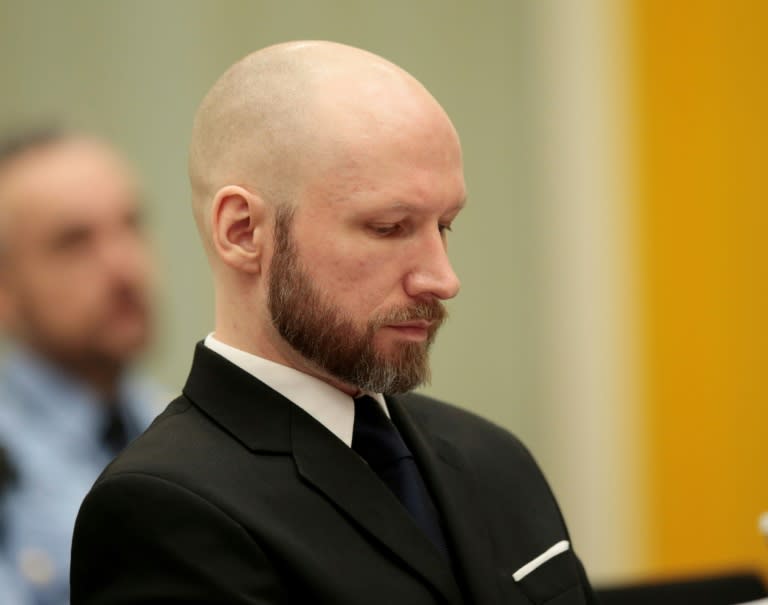Norway says Breivik a VIP inmate with 'cosy' conditions

Norway on Tuesday insisted mass murderer Anders Behring Breivik enjoyed "cosy" conditions in prison, including cells with a view, an Xbox and a comfy armchair, as it appealed a lower court conviction for "inhumane" treatment. "He is a VIP inmate in many regards," Attorney General Fredrik Sejersted told the appeals court. Last year, the Norwegian state was found guilty of violating Breivik's human rights, primarily because of his prolonged isolation, and it has appealed the ruling. The 37-year-old right-wing extremist is serving a 21-year prison sentence handed down in 2012, which can be extended indefinitely as long as he is considered a threat. In July 2011 Breivik, disguised as a police officer, tracked and gunned down 69 people, most of them teenagers, at a Labour Party youth camp on the island of Utoya, shortly after he killed eight people in a bombing outside a government building in Oslo. He said he killed his victims because they valued multiculturalism. An Oslo district court stunned victims' families in April 2016 when it found the Norwegian state guilty of treating Breivik "inhumanely" and in "degrading" fashion, in breach of Article 3 of the European Convention on Human Rights. "His prison conditions are better than those of other prisoners," argued Sejersted on Tuesday, calling them outright "cosy". In the Skien prison in southern Norway, Breivik has three cells, some of which have views of the nature outdoors, where he can play video games and watch television. He also has a computer without internet access, gym machines, books and newspapers. But, held apart from other inmates for security reasons, he told the court that he is suffering from his isolation, which he claims has radicalised him further. He has also complained about full-body searches and the frequent use of handcuffs, especially in the early stages of his incarceration, and the strict controls on his correspondence, which he claims are in violation of his right to privacy under the European Convention. The lower court judge had ruled against Breivik on that point. - 'Young Adolf Hitler imprisoned' - The state has meanwhile argued that Breivik has not been isolated, noting his multiple contacts with guards, with whom he plays backgammon, his lawyers and pastors, as well as his studies by correspondence and various activities made available to him in his cell to compensate for being detained alone. "No other prisoner can discuss and play games with prison staff for two hours a day," insisted Sejersted, also noting the numerous letters -- albeit censored by prison guards -- that he exchanges with the outside world. Breivik also remains very committed to his ideological goals, the attorney general said. "He sees himself as a young Adolf Hitler jailed in the early 1930s. He expects to get out at some point and become the Fuhrer," he said. Facing him, Breivik spent most of the day shaking his head in apparent disagreement. The appeals case has drawn limited attention in Norway, a tranquil and prosperous country trying to turn the page on this painful episode in its history. Survivors and victims' families usually try to ignore the man they refer to only as "the terrorist", as well as his provocations. Last week, Sejersted painted a picture of an inmate in strong physical and psychological health, but who has expressed no remorse for his crimes. Behind his polite exterior, he "is the same man as the one who shot teenagers in the back and who, when they were lying on the ground praying for their lives, walked up to them and put a bullet in their head," he said. Sejersted said the strict controls on Breivik's contacts with the outside world were needed to prevent him from building a far-right network capable of carrying out future attacks. "We grant him the very same guarantees that he holds in contempt. But we don't need to be kind to a fault, the rule of law has the right to defend itself," he argued. The six-day hearing concludes on Wednesday when Breivik's lawyer presents his final arguments. A ruling is due in February.

